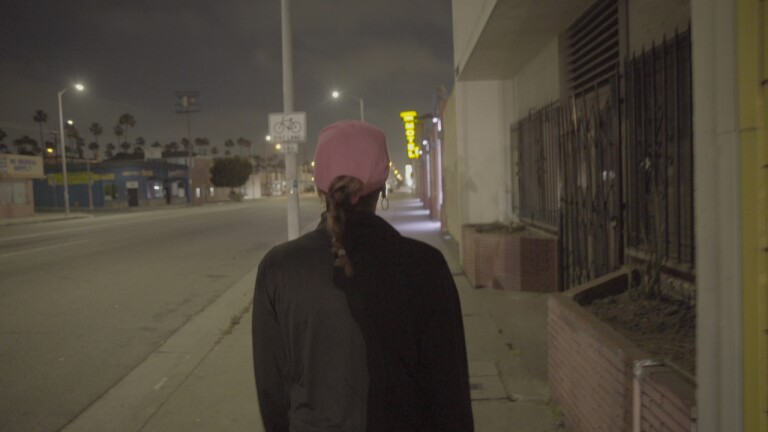
Moyers: The Biggest Story of Our Time
Val Zavala interviews veteran journalist Bill Moyers ahead of his highly anticipated new show, Moyers & Company.
TRANSCRIPT:
Living in the 2nd Gilded Age.
Bill Moyers: The growth of inequality in this country is the biggest story of our time. The "have-nots" now have less than they ever did. The "have-it-alls" now have more than they ever did. Since 1979, 40 percent of the growth of income has gone to one percent of the population. This is changing us radically.
You go back to the last part of the 19th century, the first gilded age. We're living in the second gilded age. The first gilded age, the industrial revolution, released enormous wealth at the top and excruciating misery at the bottom. It took the populist movement, the progressive movement, finally leading into the New Deal and the Fair Deal, before we began to correct those imbalances.
It's Not Money Anymore.
Val Zavala: Do they realize that greed is bad? Do they realize?
Moyers: No, they think greed is good.
Zavala: They really do?
Moyers: They think the more money they make, the more trickles down to everybody else. That's not true. Trickle-down economics has never worked. It just has never worked, despite what Ronald Reagan said in the early 1980s. If it trickles down, it trickles only down the leg, because that is what they are doing to us. No, you know, these are interesting people. They're very smart people. They're also monomaniacal people. That is, they see only one thing ahead of them, and that's making money.
You know, there has to be a moment when you have enough and more than enough. You take Warren Buffet has $13 billion. How can he even think about spending the interest? But they get into this world where the only defining standard of success is more money. No matter what they do with it.
Zavala: It's almost not money anymore? It's a like a game or points?
Moyers: It's not money anymore.
Zavala: It's not money anymore.
Moyers: It's not money anymore.
They Can Write the Rules.
Moyers: There's always been a tension in American life between democracy and capitalism. Democracy proclaims that we are essentially a political equal. You have as much potential to life, liberty and the pursuit of happiness. You have as much potential to have your voice heard as I do or anybody else. That's democracy, where you have a rough political equality trying to solve our common problems. Capitalism is about accumulating wealth. Nothing wrong with that, nothing wrong with capitalism. Nothing wrong with corporations within their sphere, but when they become so powerful that they can write the rules by which democracy operates, then you get not democratic capitalism, but crony capitalism. That's the kind of capitalism that's taking us down.
The Rules Can Be Changed Again.
Moyers: Since 1971, when the corporate and business community mounted what became really a class war on the middle class, the middle class had been shrinking. But they rewrote the rules of the economy, and they rewrote the rules of politics to give tax breaks and all kinds of advantages to the people with capital, the people with money. If those rules were rewritten, they can be re-rewritten. Rules can be changed again. It comes down to politics. You see, we talk about these people at Occupy Wall Street, and they say they don't know what they're doing and don't know why they are there. We know why they're there. They're occupying Wall Street because Wall Street has occupied the country.
He's Not a Fighter.
Moyers: The economy and the government was in sad shape when Barack Obama started running. He didn't have a policy for dealing with the financial collapse. It happened, as I say, in the fall of that year. I mean, it started before that, but it came, the bridge came down while he and McCain were nearing the end of it. But, and he was inexperienced. He had no experience to deal with this. Five years before Barack Obama was taking the oath of office, he was the state senator in Illinois. He, son of a white woman and black father; grandmother who was white and, by the way, a banker; grandmother, who had great influence on him, was a banker. He negotiated his way through a white man's world. And the lesson on him was "I'm not gonna be Jesse Jackson. I'm not gonna be Al Sharpton. I'm gonna be different. I'm gonna be a post-racial, post-partisan person because that's how I've gotten here; and he assumed that the other side wanted to play by the rules the way he did. They don't. Every time he put out his hand, they slap it way. He puts it out again, they slap it away. Then they start slapping his cheeks like in the movie - bang bang bang. He says, "Let's get along," and they — but he cannot come out of that negotiating posture that he thinks is the way you achieve your purposes in the world. And that's right if you're in a non-polarized world, but when you are in a polarized world, you gotta fight. You gotta be tough. You gotta be like Franklin Roosevelt. "My enemies hate me. And I welcome their hate." You know, you gotta talk about Teddy Roosevelt, about the "malefactors of great wealth." You gotta fight for the people. He's not a fighter. He's a good smart guy, but he's not a fighter.
If We Don't Do Something...
Moyers: When I was in Washington we passed the Civil Rights Act of '64, the Voting Rights Act of '65, and the Civil Rights Act of '66 — only took 51 votes. Nowadays, it takes 60 votes just to get the right to vote in the Senate. And you can never get 60 votes to break the filibuster. So that's paralyzing. It's making it impossible for any good thing, anything to happen, whether it's good or what, for any progress to be made towards solving these problems. So if we don't do that, and if we don't do something about this enormous inequality, we're going to wind up like Mexico, Russia, Brazil.
I hope I'm wrong. If we can, I mean, there's enormous resiliency in the American people. We're the richest nation in the world still. China is going to catch up with us, but we have enormous resources. Except that our political system is not just broke. It is dysfunctional.






















